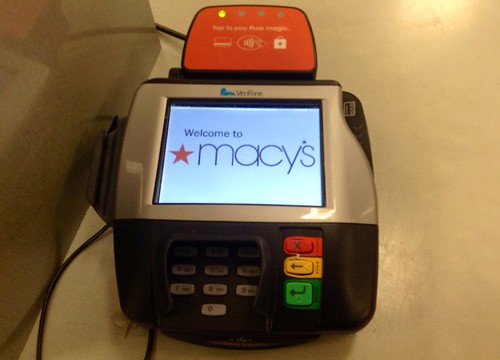Many negative emotions are related to filing bankruptcy. People who experience this process are always worrying about how to take care of their debts. As the following article explains, options do exist for those facing financial difficulty.
Filing for bankruptcy is something many people are forced to do when there debts become too much of a burden, and they can no longer afford to pay them. If you’re in this position, it is a good thing to familiarize yourself with the laws that apply in your area. Every state has a separate law having to do with bankruptcy. In certain states if you file for bankruptcy your home remains protected, but the laws vary depending on where you reside. Be sure to have some familiarity with the law in your jurisdiction.
Try to find a bankruptcy attorney who is personally recommended, rather than off the Internet, or out of the yellow pages. Some companies just want to take advantage of you, so it is important that you have help from someone you trust.
Credit Cards
Do not pay your taxes with credit cards that will be canceled when you file for bankruptcy. In most states, you will still owe money to the IRS and have to take care of the interest of your credit cards. Rule of thumb is if the tax is dischargeable, then the debt will be dischargeable. So it does not help you to put the tax bill on your charge card if you know the debt will be discharged anyway.
It is important to understand your rights when filing bankruptcy. If you’ve had collateral, such as a car, electronics, or jewelry repossessed for non-payment, you might be able to recover the property when you file for bankruptcy. You should be able to get your possessions back if they have been taken away from you within 90 days before you filed for bankruptcy. A qualified bankruptcy attorney can walk you through the petition process.
Be sure you’re doing what’s right before you file for bankruptcy. There are other options available, such as credit counseling for consumers. Bankruptcy will leave a permanent scar on your credit report and before you take this huge step, you should search through every available option first, to help try and limit the damage to your credit.
Don’t be reluctant to remind your lawyer about specific details he may not remember. Never assume that they can remember all details without reminders. It’s your financial future that is in his hands; don’t hesitate to speak up.
Bankruptcy is tricky and hiring a good lawyer will be a must. Personal bankruptcies are detailed and complex processes, and you may miss something that costs you money. A qualified bankruptcy attorney will guide you through the steps and help you do everything properly.
The best way to build your credit up after a bankruptcy is making all your payments on time. Secured cards can be a great way to get started if this happens to you. This will demonstrate that you’re seriously trying to restore your credit. After a while, you may be able to get unsecured credit again.
Research what assets are exempt from seizure before you decide to declare bankruptcy. The Bankruptcy Code has lists of various asset types that are exempt during the process. It is vital that you know the things on this list prior to filing for bankruptcy, in order to determine which of your possessions will be taken away. If you fail to do so, things could get ugly.
It is possible to keep your home. It isn’t inevitable that you will lose your house when you file for bankruptcy. It depends what your home value is and if there is a second mortgage, as all this stuff comes into play when determining if you can keep the home. Otherwise, there is a homestead exemption you should look into, as it might let you stay in your house.
You must be absolutely honest when filing for personal bankruptcy. If you try to hide any of your information, it will eventually surface and cause you problems. The lawyer representing you when you file needs to have full knowledge of your financial situation. Be completely honest in your paperwork to avoid a situation that may end in severe punishment.
Never give up. There may still be way to get repossessed items back after you file for bankruptcy. If it has been fewer than 90 days since you filed for bankruptcy, it is possible for you to get repossessed property back. Speak with your attorney about filing the correct petition to get your property back.
Remember to only file for bankruptcy if you need to. Maybe you can just consolidate debt to make it simpler to deal with. There is not easy process associated with personal bankruptcy. Remember that your credit will be affected by the mark of personal bankruptcy for a long time. Before you decide to file for bankruptcy you want to be absolutely certain that it is the only way to resolve your problems.
You should never pay for your first consultation with a bankruptcy attorney. Make the most of this free consultation by asking lots of questions. Most attorneys offer free consultations, so meet with a number of them before you retain one. Don’t hire an attorney who fails to address all your concerns and questions. After your consultation, take your time to make your decision. So, this gives you plenty of time to consult with several attorneys.
Bankruptcy is tricky and hiring a good lawyer will be a must. It is unlikely that you will be able to comprehend all the various rules and regulations involved in bankruptcy law. An attorney will make sure that everything is being done correctly.
Chapter 13 bankruptcy might be a good option, so don’t overlook it. If you have less than a quarter of a million dollars in debt that is unsecured and a regular income, you are eligible to file a Chapter 13. That way, you can hold onto your personal assets and pay back a portion of your debts pursuant to an approved plan. The window for Chapter 13 repayments is typically 3-5 years. At the end of this time, any unsecured debt is discharged. Remember that you must make every payment. Missing even one could cause the court to dismiss your case.
Chapter 13 Bankruptcy
Make sure that you understand the difference between Chapter 13 bankruptcy and Chapter 7 bankruptcy. If you file using Chapter 7 bankruptcy, you will get all your debts eliminated. The ties with the creditor will be broken. With a chapter 13 bankruptcy, a 60 month period of time will be established in which you will repay the as much of your debt as possible. Following the 60 month period of time, the remainder of your debt will be excused. You have to know what differs between all of the kind of bankruptcy, so you know which is one is ideal for you.
If you make more money than what you owe, filing for bankruptcy is not a good option. Filing for bankruptcy can really damage your credit in the long run, by staying on your report for up to ten years.
After reading this article, hopefully you now know that bankruptcy does not have to mean doom and gloom. Although it is hard at first, you will get through it. If you use these tips and ideas, you will be on your way to a better financial future.





